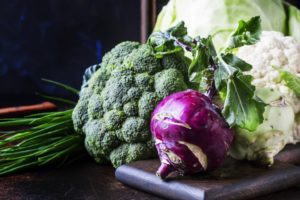 Bone health doesn’t get the respect it deserves. While plenty of attention is paid to skin, hair, heart, and weight, the bones can get lost in the fray. But if you’re a post-menopausal woman, or will be, the state of your bones can have a significant influence on overall health.
Bone health doesn’t get the respect it deserves. While plenty of attention is paid to skin, hair, heart, and weight, the bones can get lost in the fray. But if you’re a post-menopausal woman, or will be, the state of your bones can have a significant influence on overall health.
According to the National Osteoporosis Foundation, half of women aged 50 and older will experience a bone break resulting from osteoporosis. Lost bone density boosts the likelihood of a break, and at best it can lead to inconvenience and temporary mobility trouble. At worst is the loss of mobility or death.
Advertisement
Although the majority of bone mass is determined by genetics, lifestyle factors like diet and exercise play a role. So, if you’re serious about bone health, eating the right stuff can help maintain density and lower the risk for associated injury.
- Dairy: Dairy is calcium-rich, which is required for healthy bones. Because of its highly bioavailable calcium levels, cow’s milk may be the superior choice when it comes to milk. If you drink plant-based milk, you’ll likely have to increase calcium intake from other sources.
- Protein: There is evidence to suggest a high-protein diet may contribute to stronger, healthier bones. A diet high in protein can help build and maintain muscle around the bone, offering resilience and support. Experts suggest adults eat more protein than current dietary recommendations.
- Cruciferous vegetables: Studies have shown cruciferous vegetables like broccoli, kale, and Brussels sprouts can reduce fractures in postmenopausal women when consumed in high amounts. Cruciferous vegetables can be excellent sources of calcium and vitamin E, which both work to support bone density. However, it should be noted that although eating plant-based foods is very healthy, eating them exclusively may boost the risk for weak bones.
- Mediterranean diet: Although it’s difficult to identify particular Med-diet foods that benefit bone health, research indicates that eating a Mediterranean-style diet is associated with a lower risk for fractures. This may have something to do with its balanced approach to healthful eating.
Lastly, it’s important to note that calcium cannot build strong healthy bones without vitamin D. Therefore, adequate vitamin D intake is essential. Although it can be found in certain UV-treated mushrooms, as well as salmon and eggs, the best source is the sun or supplementation.
So, give your bones a little love. After all, they’ve been carrying you around all these years!
